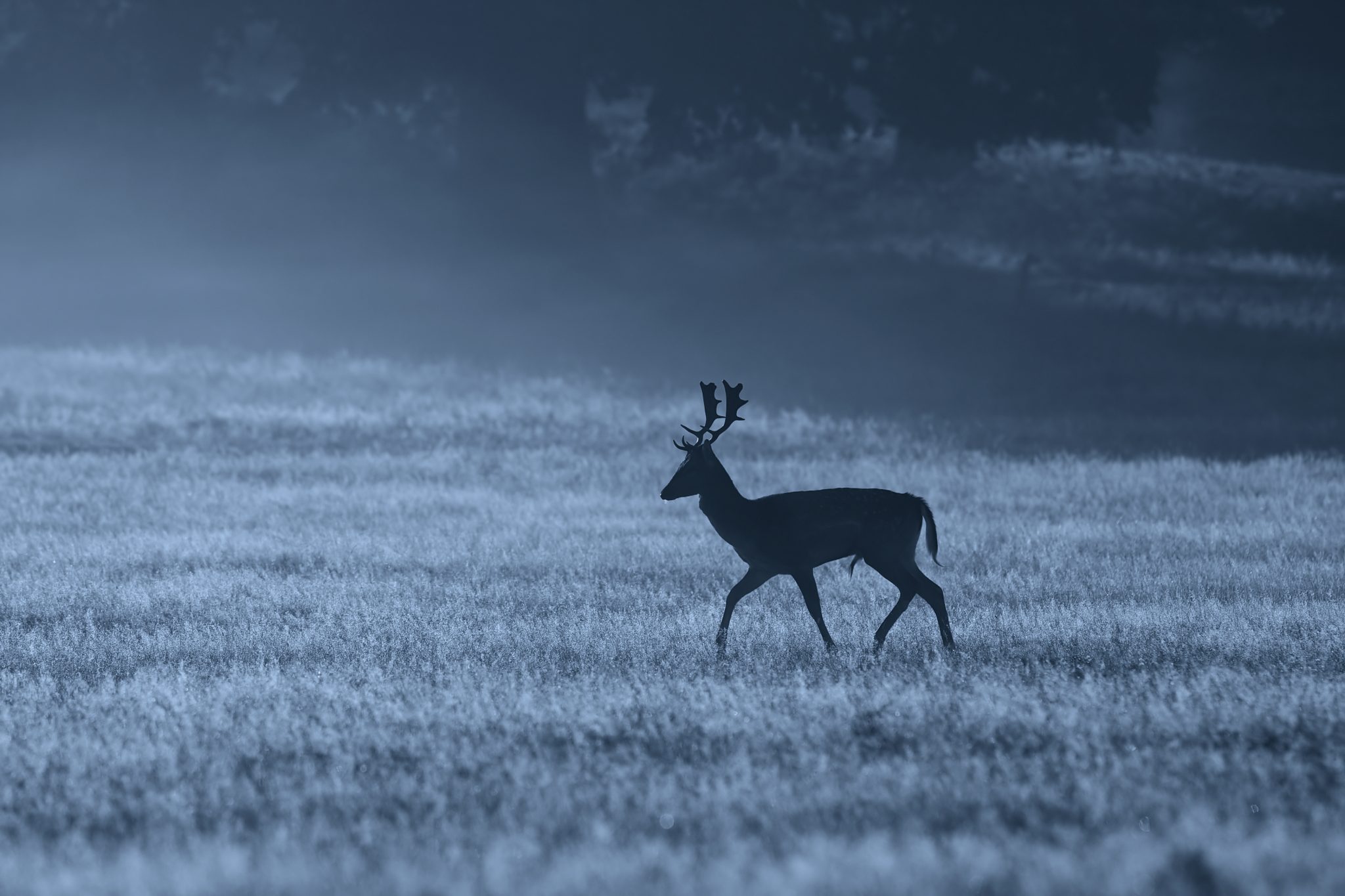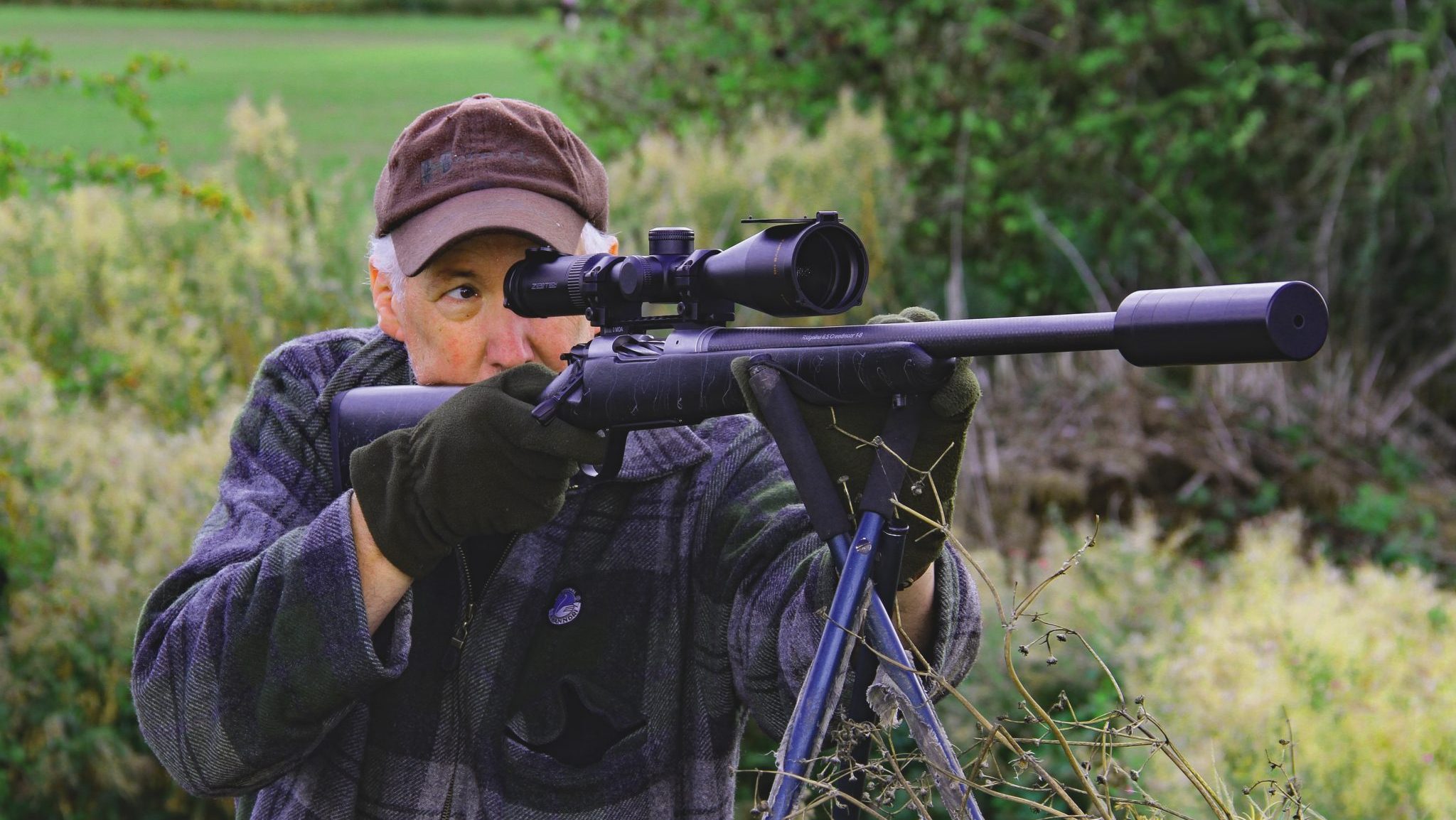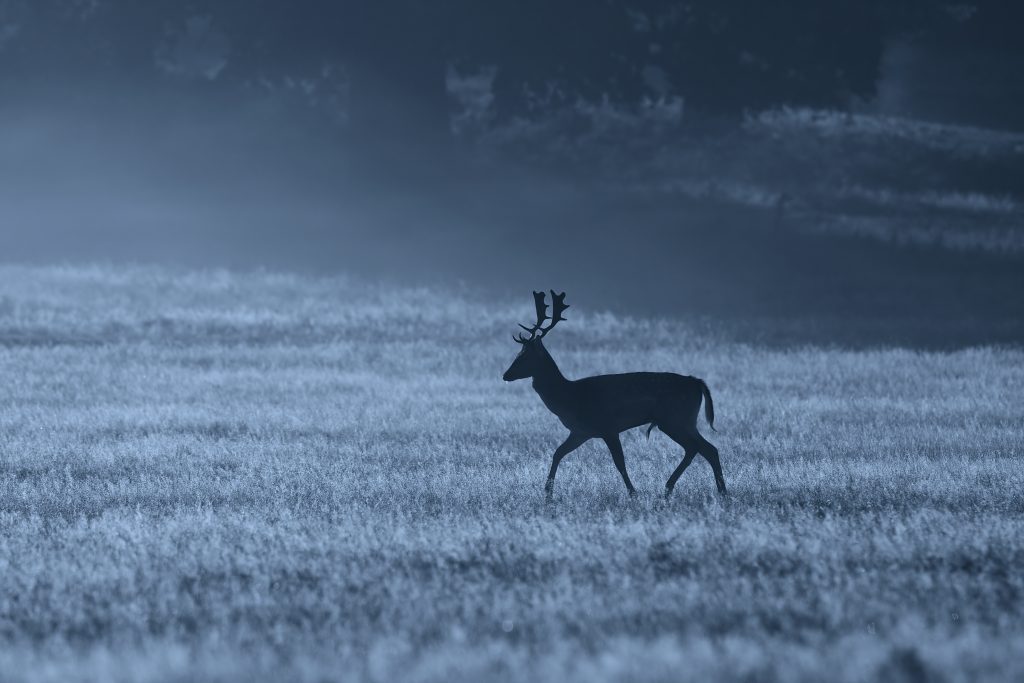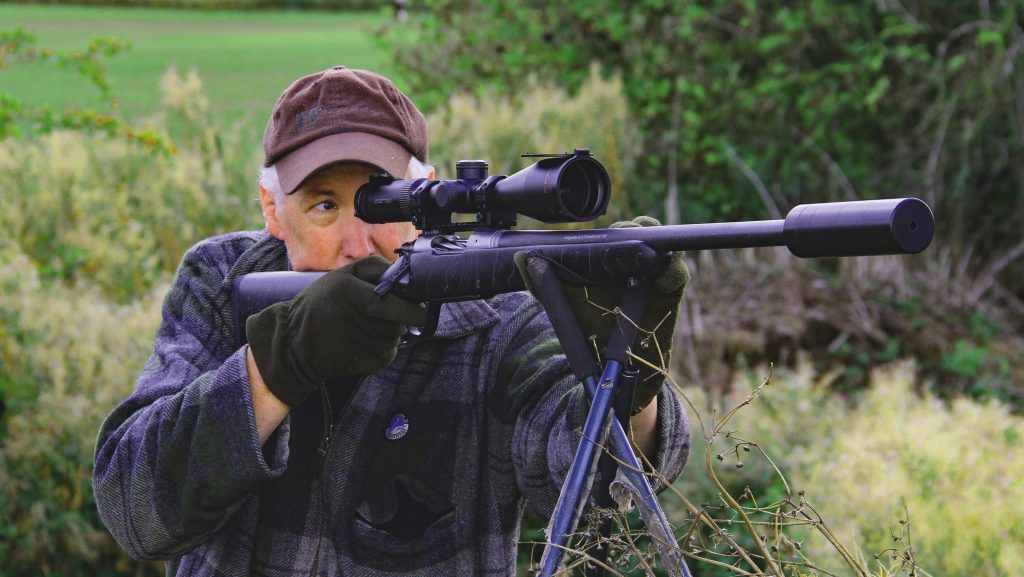★ Win a Schöffel Country shooting coat for everyone in your syndicate worth up to £6,000! Enter here ★
How to improve your shooting accuracy
How to improve your shooting accuracy: How can you hit the ground running next season? Season experts give their hints and tips.
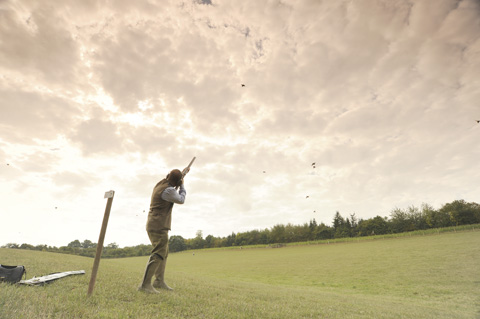
Start the season unprepared and it may take you, at best, a few drives to settle in. At worst, the entire day could be an embarrassing and expensive write-off, leaving you the subject of a serious amount of leg-pulling. So how can you take steps to ensure you shoot better next time you are faced with a challenging game bird?
Game shooting is a high-end sport; the cost of a day varies from hundreds to thousands of pounds, depending on where and how often you shoot.
Scottish game gun Donald Kirk says: “I have been shooting for more than 50 years now. I started out by accompanying my father when he went shooting; I think I was only about six at the time. I had to wait for a couple of years until I started shooting, but my treat was cleaning the gun and then getting to swing it – empty – in our farm garden afterwards. I love my shooting and still get really excited about the 10 game days I do each season. I have always felt I have to do the day justice. The keepers, beaters, pickers-up and their dogs have put in a lot of hard work to bring the day together and produce something I can shoot, so I want to show respect by shooting well.”
Improve your shooting: be in tune with your shotgun
Donald also shoots clays and credits all the shooting he has done at the clay ground with improving his game performance.
Donald says: “Practice is important and the best way to do that is to go to a clay ground. You can take everything you learn shooting clays to a game day. I consider regular practice of stance, swing and being familiar with the feeling of the gun in your hand to be very useful. Half the battle is knowing your gun, so when you pick it up it feels like an extension of your body and you instinctively slide it into a safe and balanced position.”
Familiarity with your shotgun will show in the way you handle it. Look at the smooth movements that golfers and tennis players display: they glide and move as one with their equipment. If you look along a line of guns you can easily spot those familiar with their guns; they handle them safely and when they shoot, their movements will be minimal, relaxed and confident.
Are you really as good as you think you are?
Farmer James Johnston has shot since a young age. He is out weekly around the farm shooting crows and pigeons, and decoying geese and ducks; he also attends game days during the season.
James says: “I always felt I was better than the average shot. I was confident and able to knock them down. I had plenty of practice on our farm and my neighbour’s farm and if I wasn’t out shooting I was beating. However, bringing up my family and building a house meant I had to take a break.”
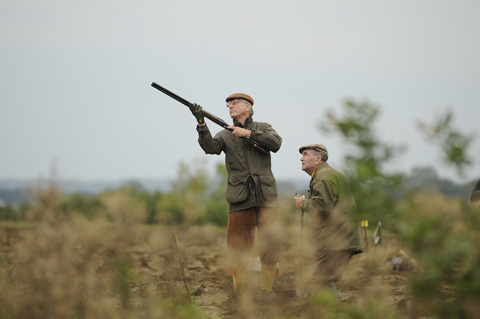
By April 2012 James hadn’t picked up his gun in over a year and realised how much he had missed shooting. He joined the SCTA (Scottish Clay Target Association) and entered the first competition he saw.
James says: “I didn’t know anyone but really wanted to have a go. I shot 48/100 and enjoyed myself but felt frustrated at my low score. I expected to do better so it spurred me on to try again. I entered more competitions and thought things were improving as my scores were mainly in the 60s, but I couldn’t get beyond that point or see a way forward. I thought I was a good shot but my competition results were telling me otherwise. Previously, I had taken golf lessons to improve my game and after three lessons my handicap went from 18 to 10, so I applied that same logic to my shooting.”
Gunfit matters
James continues: “World champion clay shooter Ben Husthwaite was recommended to me so I spoke to him and we arranged my first coaching session. Ben asked me to mount the gun and watched, and identified I was shooting too low and to the left. We went to the workshop where Ben fitted the gun and instantly I could see more rib. I had bought a new gun, a Beretta DT11, and assumed the gun fitted me but as I found out, no off-the-shelf gun is ever going to fit you.”
James explains: “After the morning’s coaching session Ben took me to a local shooting competition and I shot 77/100. I was elated at the progress I had made after just one session; I had gained confidence in my shooting again, was consistent and had the fundamentals in place to be a better shot. A few weeks later I had two afternoons of pigeon flighting over rape stubble. I was reading the flight paths and consistently killing long crossing pigeons. The first afternoon I shot 121 and the following day downed 168. I can’t wait for the game season to start again.”
Phil Coley, son of former Olympic coach Ian, says: “More than 75 per cent of shooters have never had their gun fitted correctly but to shoot well your gun has to fit you properly. If you buy a new gun you are likely to go through the honeymoon period or ‘new gun syndrome’ where you are confident, you shoot more and you shoot better for a while, then the issues start to appear and need to be addressed.”
Coaching can really help you improve your shooting
Ben, who won his first world championship when he was 14, says: “I was invited along to my very first game shoot about 12 years ago – it was an unforgettable day. It was an English partridge shoot and I was really looking forward to it, as I had never shot game before and instantly loved it. I watched my hand speed, if I have a good tempo I know I’ll shoot well. I enjoyed the challenge of the unpredictable birds, I shot well and it left me wanting more. At lunch, the other guns approached me and asked me how I’d managed to shoot so well. That was start of my game coaching career.”
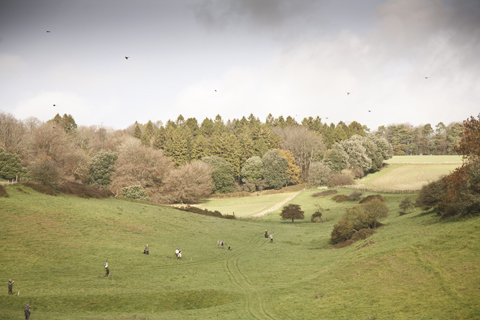
Phil Coley says: “Coaching should be viewed as an investment in yourself and in your shooting. Three or four lessons can put an average game gun on the way to being a good shot. Shooting clays gives you the opportunity to work in a controlled environment and repeat a technique. It will also equip you with the tools to approach a game day with improved mental skills, enabling you to deal with a wide variety of challenges. Shooting should be enjoyable, so avoiding stress and staying relaxed is important to get the most from the day. When people are anxious the first thing that goes is their peripheral vision. This is because the blood is redirected to the major organs – the body’s fight or flight response. So the blood supply to your eyes decreases and the result is a reduction in peripheral vision, so you fail to pick up second birds.”
A competitive edge
“I love my game shooting and shot 30 days last season,” says David Noon. “I know what I want out of it: to go to some of the best estates and hit the good stuff. Game shooting always gives you infinite variety; big days, small days, walked-up, driven, pheasant, grouse and partridge. Part of my enjoyment of game shooting stems from this enormous variety and also from the fact that no two birds are the same.
“I want to stretch myself, too, but I realise I can only do that by going well equipped. If you have the right clothing, the right gun and the right instruction it really adds value to your day. I have never subscribed to the poke and hope style of shooting and because I am very competitive I want to get the best I can from my game shoot days, so I invest in my shooting.”
David started shooting five years ago and had taken lessons from a local instructor who, after 18 months, said he couldn’t take him any further, so he introduced him to Ben Husthwaite.
David continues: “Through Ben’s coaching I can now stretch myself with knowledge and confidence. I feel I have time when I am shooting; it’s as though I am shooting in slow motion and can pick the birds I want to shoot.”
Improve your shooting: kill them cleanly
Dick Hardy is the shooting tenant of two Angus estates. He is a retired gunsmith and gunshop owner and has represented Great Britain as a member of the FITASC sporting team. He is a former Scottish champion at both sporting and skeet.
He says: “On a game day you have to know your own capabilities. An experienced shot will select the best birds and take great pleasure in shooting them. He or she will also avoid clashing with neighbouring pegs. Guns are there for a days’ sport and we want to ensure we give them exactly that by putting good quality birds over them.”
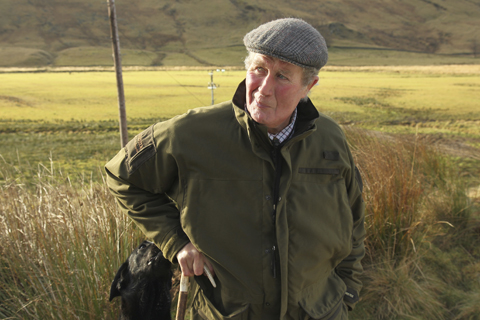
He continues: “You don’t want to see good birds pricked by poor shooting or being shot from behind; you want to see a nice clean shot and the head going back on the bird. I have often heard people saying that after watching a bird coming from a long way off they miss because they mount the gun too early and have too much time to think about it. A high bird is most vulnerable when it is stretched out directly above you; every sinew of its body is exposed. When I am out on a game day I always like to shoot all my pheasants between 11 and one o’clock above me. Practising on driven clays is a good way to get your eye in, especially if they’re off a tower; it is the classic game shot, high and fast over your head.”
Dick says one of the first things you should do on a game day is take a look around you on the peg.
“If you identify your zone you won’t clash with your neighbour or stray by shooting birds in his zone. If you see a great bird and it’s not in your zone, ignore it and give your neighbour a shout so he can shoot it. You also want to be ready to shoot by having easy access to your cartridges. Ideally, keep them on your person as bending down to a bag on the ground could mean taking your eyes off the birds and you could miss two or three great ones. I like to shoot with two cartridges in the fingers of my left hand. This means I can shoot the lead bird with my first shot, reload and watch for more birds.”
Make practice a priority
David Noon says: “Notwithstanding the variety, for me the necessary ingredients for any good day are good company, good birds, an interesting location and shooting well. Many of these you know before the day itself as you select them. The only variable is how you shoot and it always surprises me how many people don’t devote any time to practice and expect to show up and shoot like a legend.”
For other articles on how to improve your shooting and much, much more visit our features page
Related Articles
Get the latest news delivered direct to your door
Subscribe to Shooting Times & Country
Discover the ultimate companion for field sports enthusiasts with Shooting Times & Country Magazine, the UK’s leading weekly publication that has been at the forefront of shooting culture since 1882. Subscribers gain access to expert tips, comprehensive gear reviews, seasonal advice and a vibrant community of like-minded shooters.
Save on shop price when you subscribe with weekly issues featuring in-depth articles on gundog training, exclusive member offers and access to the digital back issue library. A Shooting Times & Country subscription is more than a magazine, don’t just read about the countryside; immerse yourself in its most authoritative and engaging publication.



